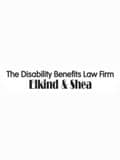
Elkind & Shea, The Disability Benefits Law Firm
801 Roeder Road
550
Silver Spring, MD 20910

Disability & the Inability To Work -" Before Filing a Disability Claim
By Scott B. Elkind, Esq.
Elkind & Shea, The Disability Benefits Law Firm
.
http://www.disabilitybenefitslawfirm.com/
More Senior Health Articles
Disability & the Inability To Work -" Before Filing a Disability Claim
I am often asked the same questions by many people considering a disability claim Am I disabled if I cannot do my old job? Am I expected to do other work?
The answers are not simple and involve a somewhat lengthy explanation.
The analysis under the pertinent Social Security regulations is complicated. Social Security requires that you have a physical or mental condition which is of such severity, as demonstrated by substantial medical proof, that it prevents you from performing your past work or other jobs available in the national economy. This general disability standard only tells part of the story.
The Social Security regulations provide certain adjustments for age, but these adjustments mostly address the ability of an individual to perform more arduous work in terms of lifting, carrying, and walking. However, Social Security will deny claims frequently on the basis that they believe a claimant is capable of lighter and/or less complicated work. This includes unskilled work which involves little or no training. Examples of unskilled jobs routinely cited for this purpose include the positions of security guard, information clerk, and assembler.
Private insurers take a different approach to the question of the ability to perform alternative work. Most group policies include a 24 month own occupation period, which pays benefits when your injury or illness prevents you from performing your previous job. Beware, the insurer will consider your job only as it is performed generally and not the specific requirements of your position. Persons holding individual policies can bargain for a stricter own occupation definition of disability.
After the 24 month own occupation period of disability ends, private insurers will reconsider claims to determine whether a claimant is capable of performing any other occupation for which the claimant is qualified by virtue of his or her work experience and/or education. Although not identical, this standard is very similar to the standard utilized by the Social Security Administration. What is surprising is that the similarity of definition has not been honored by the courts, which have uniformly stated that Social Security disability decisions in and of themselves are not binding on private insurers when determining disability as part of their claims review process.
As you can see, the requirements of both the Social Security Administration and private insurers are complex. For this reason, disability claimants should acquire skilled legal counsel to assist them in their claims.
Other Articles You May Find of Interest...
- The Types of Negligence Residents of an Assisted Living Facility Suffer
- 3 Types of Exercises Best for Seniors With Arthritis
- Independence Boost: How Medical Alerts Help Chronic Conditions
- Over-the-Counter Hearing Aids (OTC)
- Therapeutic In-Home Sauna Service for Homebound Seniors
- Staying Active and Engaged: A Guide to Enhancing Senior Wellbeing
- Technology in Nursing Homes: How Tech is Improving Care and Communication Within Nursing Homes

















